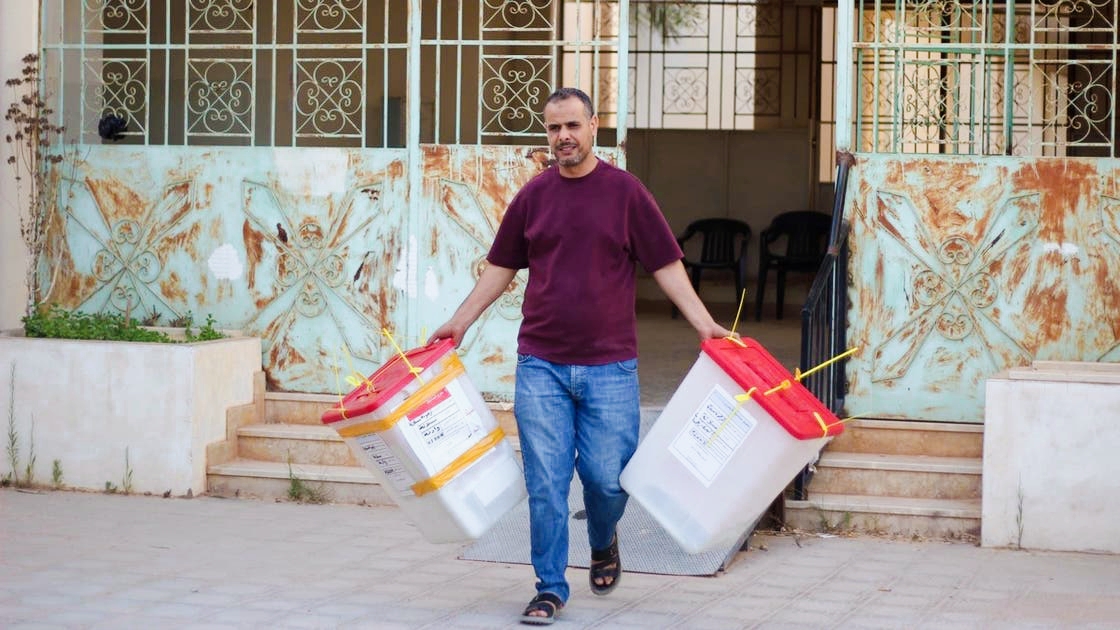The High National Elections Commission in Libya announced yesterday, Tuesday, the suspension of the second phase of municipal elections in several cities located in the east and center of the country, due to security restrictions imposed by the Ministry of Interior affiliated with the parliament-appointed government.
The decision included the municipalities of Tobruk, Al-Jdeida Palace, Benghazi, Tukrah, Qaminis, Al-Abyar, Slouq, Sabha, Sirte, Wadi Zamzam, Janzour, which are areas under the control of eastern Libyan authorities.
The Commission stated in its statement that it was forced to make this decision after receiving instructions from the security directorates of the Ministry of Interior, which mandated the immediate halt of the distribution of voter cards to voters, without any prior communication or clarification of the reasons.
It pointed out that more than 150,000 male and female voters, in addition to more than 1,000 candidates, were deprived of exercising their right to choose those who manage their municipalities.
However, it confirmed that the elections have not been canceled, and they will resume once the security threats accompanying the process are eliminated.
On the other hand, the government of Osama Hamad has not issued any official comment on these allegations so far, while the decision has sparked controversy in Libya, amid increasing calls to enable citizens to freely and transparently elect their local representatives.
In an explanation for the possible reasons for this decision, the Libyan political analyst Faraj Farkash speculated that there might be a fear among eastern authorities that the election results may bring independent or non-aligned candidates, which could destabilize the areas where the elections are taking place, especially in an environment characterized by tribal and political loyalties.
He added that despite their service-oriented nature, municipalities remain under the control of authorities, and their results could be a cause for concern if they go out of control.
Farkash also added that this suspension reflects the weakness of the democratic environment, where there is not enough space for fair elections or freedom of opinion and expression, which constitutes a negative indicator of the possibility of holding future general elections, whether parliamentary or presidential.
He considered that there is a possibility of rescheduling the elections later under pressure from the UN mission and the international community, but he emphasized that their integrity will be in doubt as long as the authorities can influence their results.
He pointed out that the clear message from this suspension is that any progress in the electoral process, whatever its nature, will only be approved by the eastern Libyan authorities, reflecting the extent of political interference in the local electoral process.
The decision triggered a wave of criticism, prompting many activists and citizens to demand the creation of a safe environment that ensures Libyans' right to choose their representatives, away from political pressures or imposed security restrictions.

